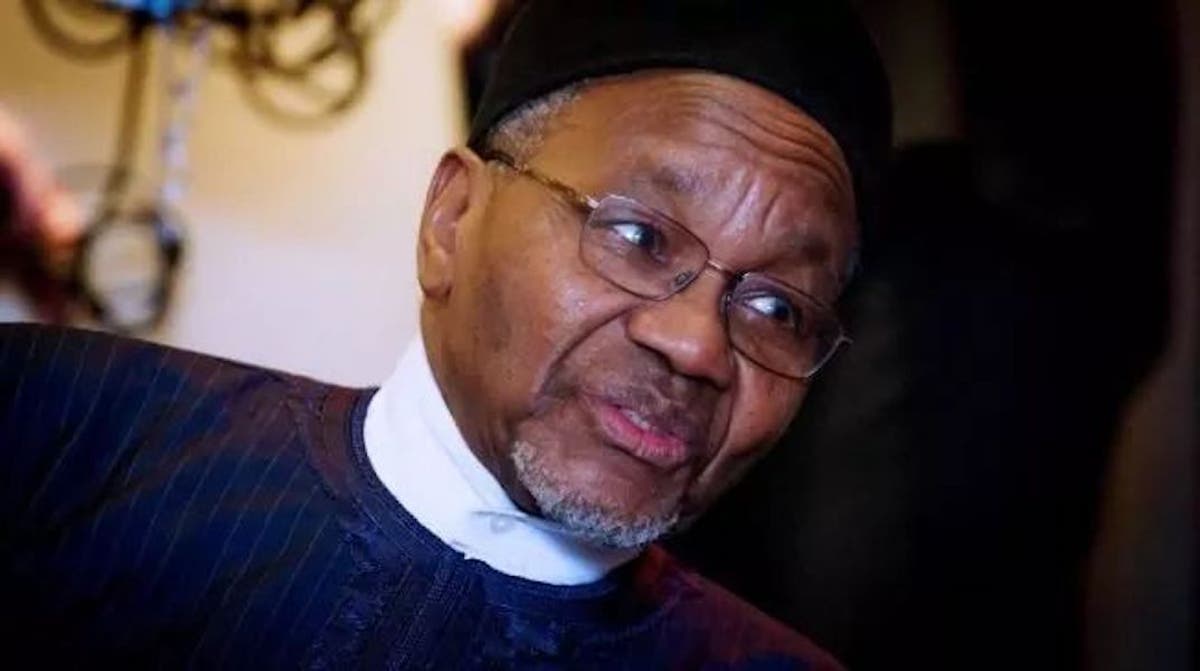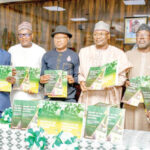Democracy is four wolves and a lamb, voting on what to have for lunch –Wilma Brown
It is most improbable that Malam Mamman Daura expressed a personal opinion when he provoked a predictable furore last week around zoning of elective offices.
- Obaseki receives APC defectors in Dagbala as pensioners back re-election bid
- We are sure of victory in Edo, Ondo elections – Gov Bagudu
More than anyone else, Malam Mamman knows that he had long forfeited the right to express a personal opinion in public, and on a public matter. Improbable, I said, not impossible.
It is no one’s fault that Malam Mamman has left ample space for being second-guessed since he assumed a pivotal role in the political fortunes of his uncle, President Muhammadu Buhari, and in the affairs of the north for longer than that.
It will be legitimate to indulge in some speculation behind the rare comments of the most important private citizen today.
Could it be the case that Malam Mamman hopes to deflect national outrage at the spectacular failure of the Buhari administration to get some handle on widening insecurity and embarrassing setbacks in the fight against corruption by lighting a fire around a combustible issue such as zoning of elective offices?
If that was the game plan, it was a good choice of combustible material.
The snag is that Boko Haram insurgents, bandits and a dozen other armed groups making a living out of weaknesses of the Nigerian state and making President Buhari look inept, weak and indecisive do not appear to have been part of the script.
Voices for and against Malam Mamman’s rare outing competed with the public interrogation of Nigerian soldiers by Borno State Governor, Babagana Zulum after he escaped what looked like an ambush on his way to Baga, and the Shehu of Borno’s plaintive cry that Borno people are no longer safe.
Another speculation: President Buhari does not want to get his hands dirtied (and his life after presidency discomfited) in the maneuvers over who should get his nod, or with quarrels over where the ticket should go for 2023.
He has a moral obligation to support Tinubu’s ambition to run in 2023, but his moral obligations do not have much of a leverage. His last-minute intervention a few weeks ago restored some semblance of order because it was in everyone’s interest to seem to be loyal and respectful to a party leader.
There could be a few people like Malam Mamman who would remind a lame duck President Buhari that he will not be able to pull out any more chestnuts out of fires. The rest of the trip to 2023 will be rough and bruising.
Staying out of the fray will be very difficult and an expensive gamble, but choices have to be made. Tinubu’s people will be chalking up Malam Mamman’s comment as a major assault and a setback.
Most of them will not hear any argument over differences between the uncle and the nephew. They will insist that a worst-case scenario would be that President Buhari offers no opinion at all over zoning in APC.
Saying that an unwritten, but powerful rule should be jettisoned is akin to doubling up on Tinubu and other southern APC politicians’ burdens.
Or, consider this: Malam Mamman acts on his own and attempts to bail out a president who needs a firm hand to keep him out of even more serious trouble.
He washes the president’s hands clean on all issues to do with who succeeds him. He prepares the president to assume a moral high ground. First, no one will fault the argument for elevating competence over all other considerations.
Second, zoning principle is not in the APC constitution and it may win the party a few points when it campaigns for competence.
Third, there is a suggestion of a level playing ground for all interested parties: no one needs feel aggrieved because the primacy attached to competence does not negate the idea that concessions could be made to zones or regions by the political process.
In other words, there are competent people all over Nigeria, and whoever emerges candidate would not have fought other good opponents with both hands tied behind their backs.
And finally: the president does want APC to win the election, but does not want some particular people to fly the flag and possibly succeed him. This thinking will be more contingent on what the opposition does or does not do.
Zoning will bestow some advantages on some politicians, and after his eight years, no one gets prizes for guessing that these are likely presidential material from the southern part of the country, or, more specifically, from the south west.
With the patterns and spread of votes established in the last three or four elections, a popular PDP candidate from the north could beat a southern APC candidate.
President Buhari is unlikely to boost the chances of any candidate he hugs too tightly given current disposition towards him, particularly in the North.
If PDP fields a northern candidate and APC fields a southern candidate, a strong endorsement from Buhari will be a death knell to that candidate.
If both parties field northern candidates, northern voters will scrutinise the APC candidate very closely for evidence that he has no traces of Buhari.
It is difficult to see how Malam Mamman’ provocation is innocent.
The idea that northern voters will do the bidding of politicians and vote candidates that are products of zoning had suffered major damage in the PDP under Jonathan.
The sentiment is strong among northern voters that they are free to vote for another northern candidate, and they will exercise that choice in 2023.Malam Mamman’s position distances President Buhari from blame in the event of that possibility.
It offends southern politicians who feel that an endorsement of the idea of north-south rotation will, for what it is worth, improve their capacity to work with northern power brokers to mobilise northern voters for them.
On the other hand, it gives encouragement to northern politicians who are gearing to fight it out with southern politicians.
Nigerians from the South are offended by the mere thought that northerners could contemplate ‘keeping’ the presidency for another eight years after Buhari.
Last minute defections over grievances by powerful politicians has now become one of the hallowed traditions of the Nigerian political system, and it will be a mistake to assume that the issue of zoning will not be a major influence on the fortunes of the two major parties.
Significantly, influence of parties on powerful members, and control of politicians on voters from both parties is waning.
Politicians from the South are guilty of hardening the stubbornness of the northern voter by the manner they cling to a sense of entitlement, complete with dire threats, if any northern candidate dares aspire for the presidency.
The image of 12 northerners battling it out for the PDP ticket in Port Harcourt before the 2019 elections are fresh in the minds of Nigerians. This will haunt both parties.
Zoning was a scheme to accommodate political ambitions, and had very little to do with the interests of Nigerians.
The fallacy that zoning improves the fortunes of citizens from particular regions has been laid to rest by the spectacularly dismal impact of Buhari’s leadership on the lives of northerners, empirical evidence that there are more than one North and South, corruption and incompetence.
Now it threatens the foundations of a nation.
There is virtually no attempt to cobble together a solid front involving the three geo-political zones in the south to improve negotiation capacities. Northern politicians sit smugly on the assumption that millions of northern voters will only vote for them.
Northern politicians are haunted by the dismal record of President Buhari, and PDP politicians from the north can smell the carcass that will be left by Buhari, but few of them can be believed when they say they will breathe new life into it, with politicians from the south playing second fiddle.
Southern politicians suffer from endemic weakness in numbers, and they realise they have to have a hefty push from many northern politicians and voters. They will need more than insults and threats to make major inroads into the north.
There is some space for an option to the two major parties, but it could be taken up by aggrieved politicians from the two parties. Perhaps, there is a profound lesson in Malam Mamman Daura’s provocation, whether it was intended or not.
It is this: the challenges facing post-Buhari Nigeria will be so serious, Nigerians must realise that they cannot resolve them using old, worn-out tools.

 Join Daily Trust WhatsApp Community For Quick Access To News and Happenings Around You.
Join Daily Trust WhatsApp Community For Quick Access To News and Happenings Around You.

